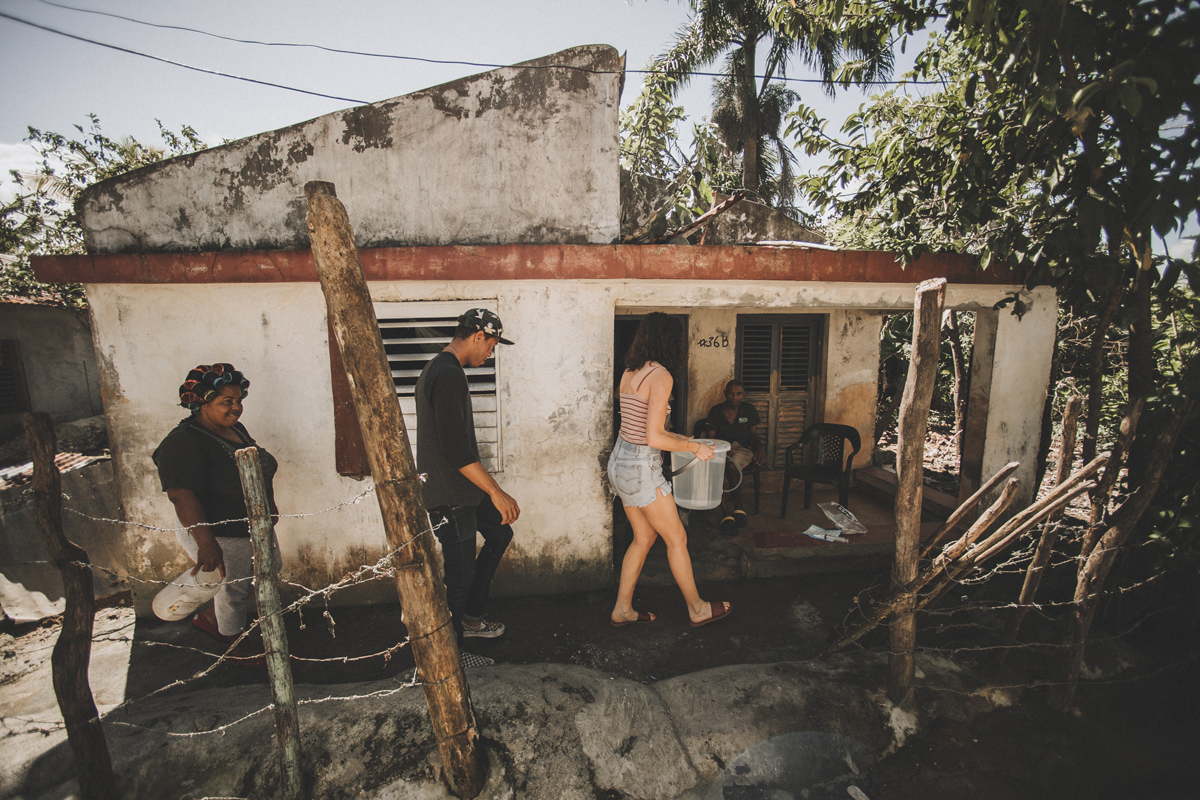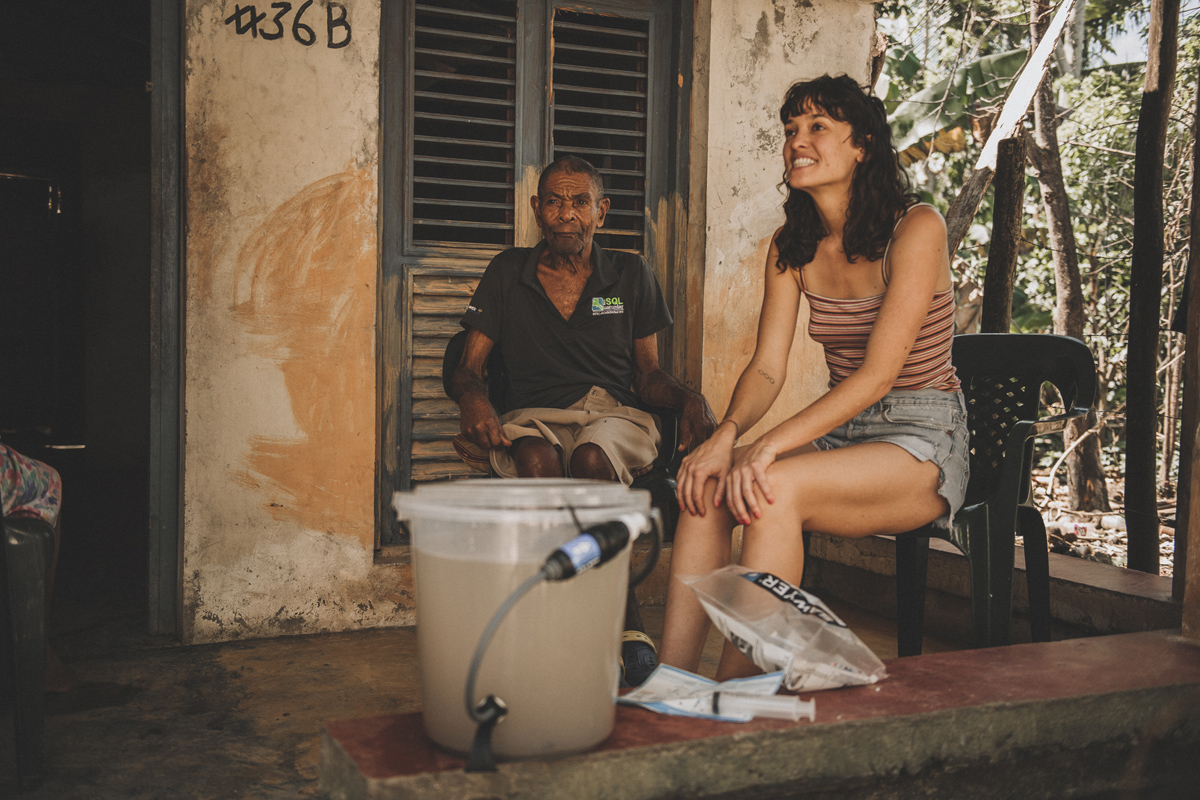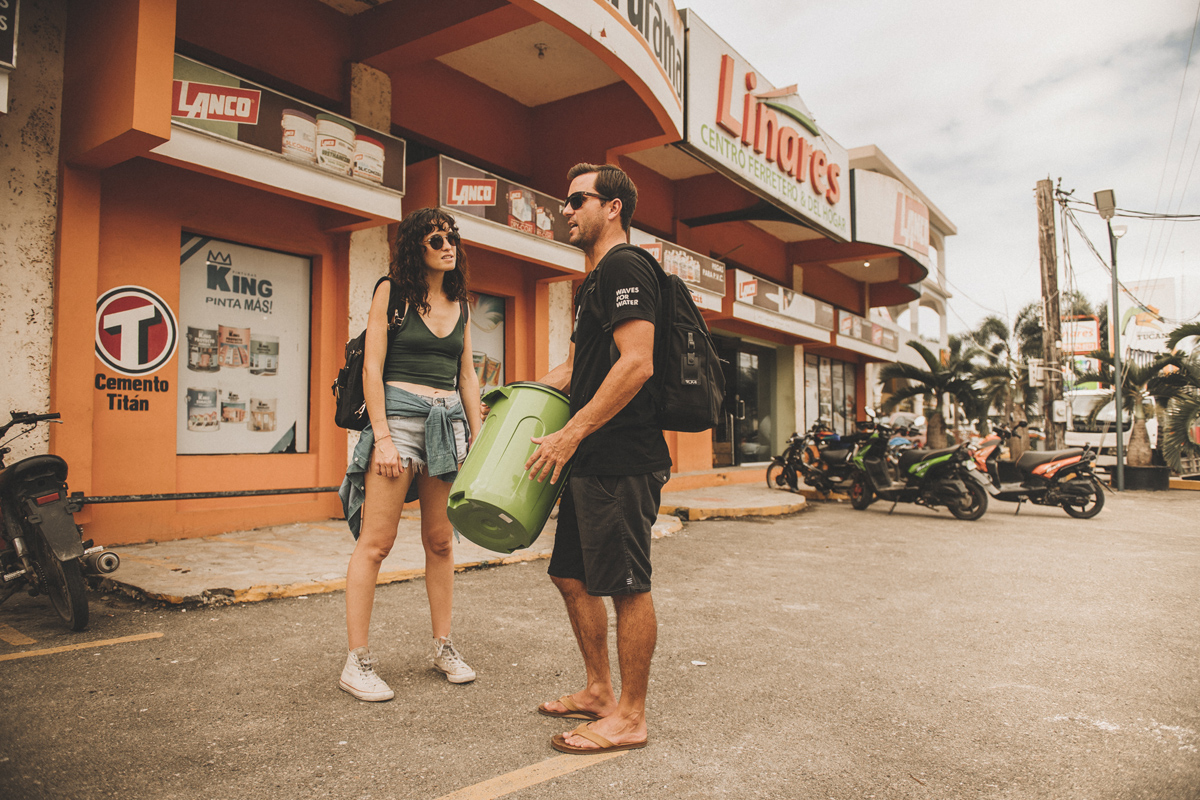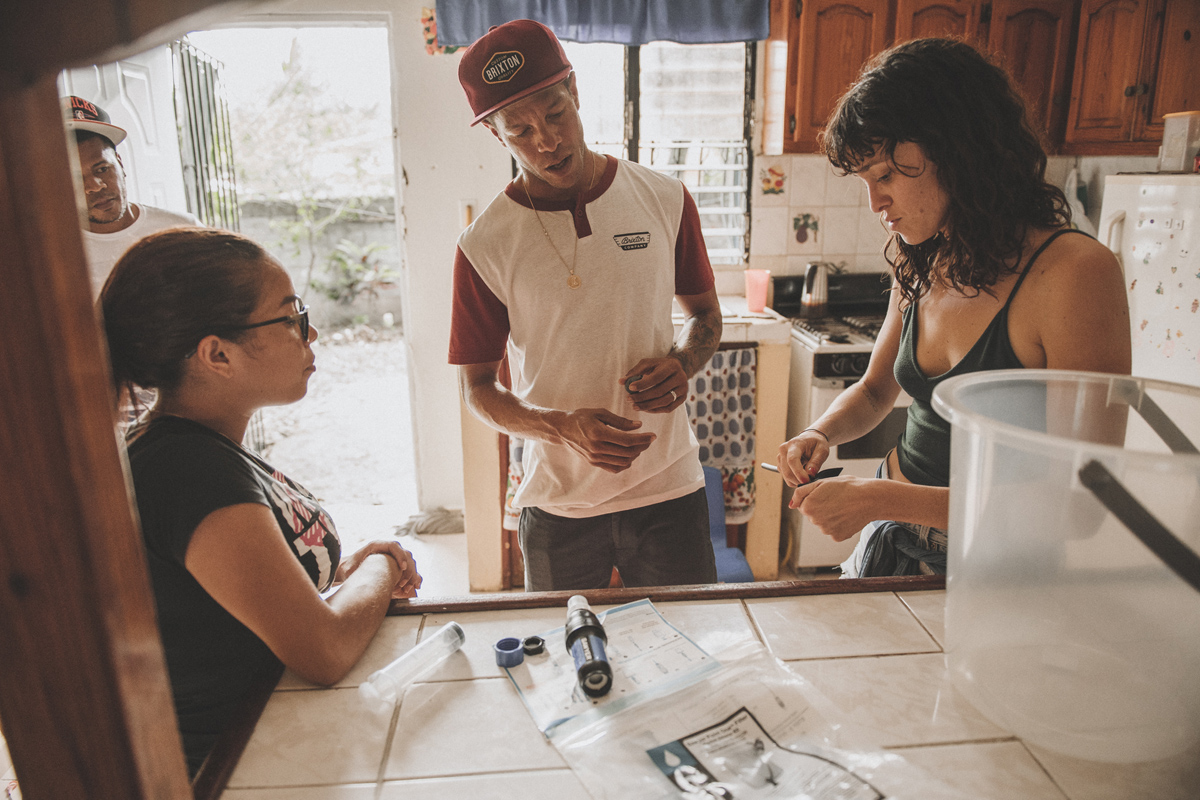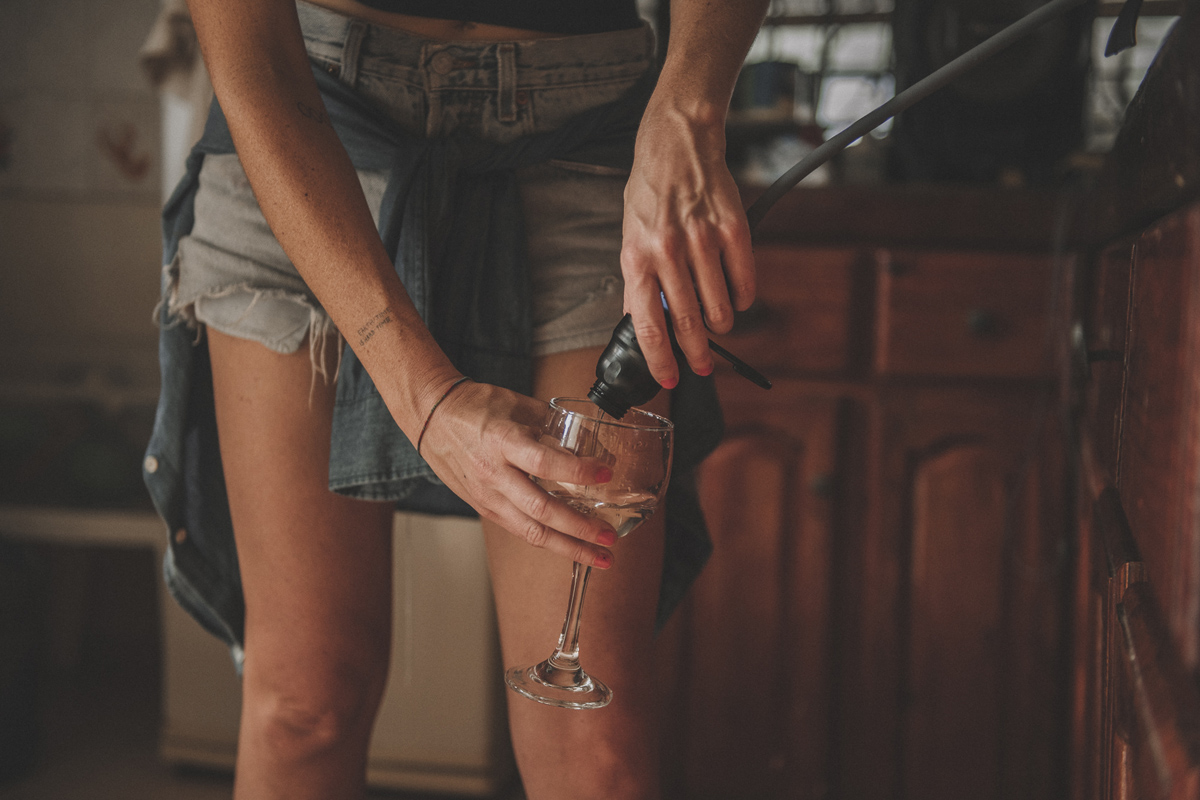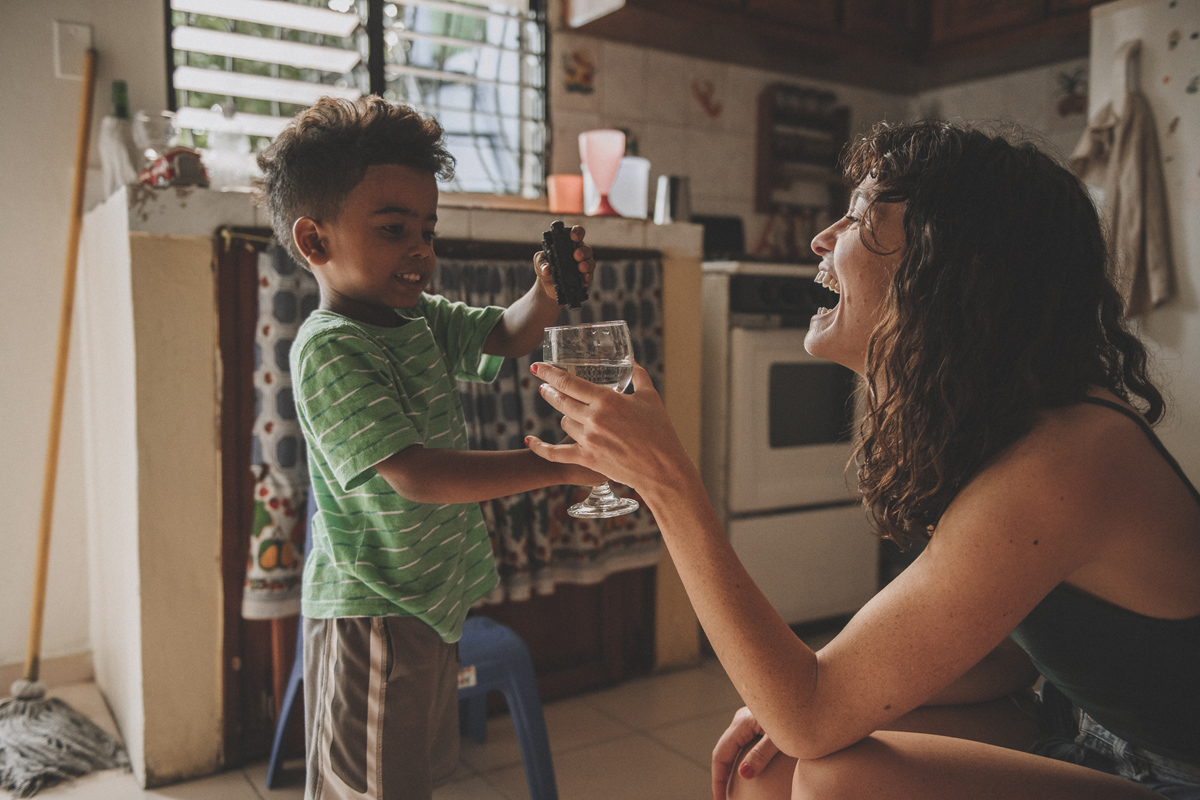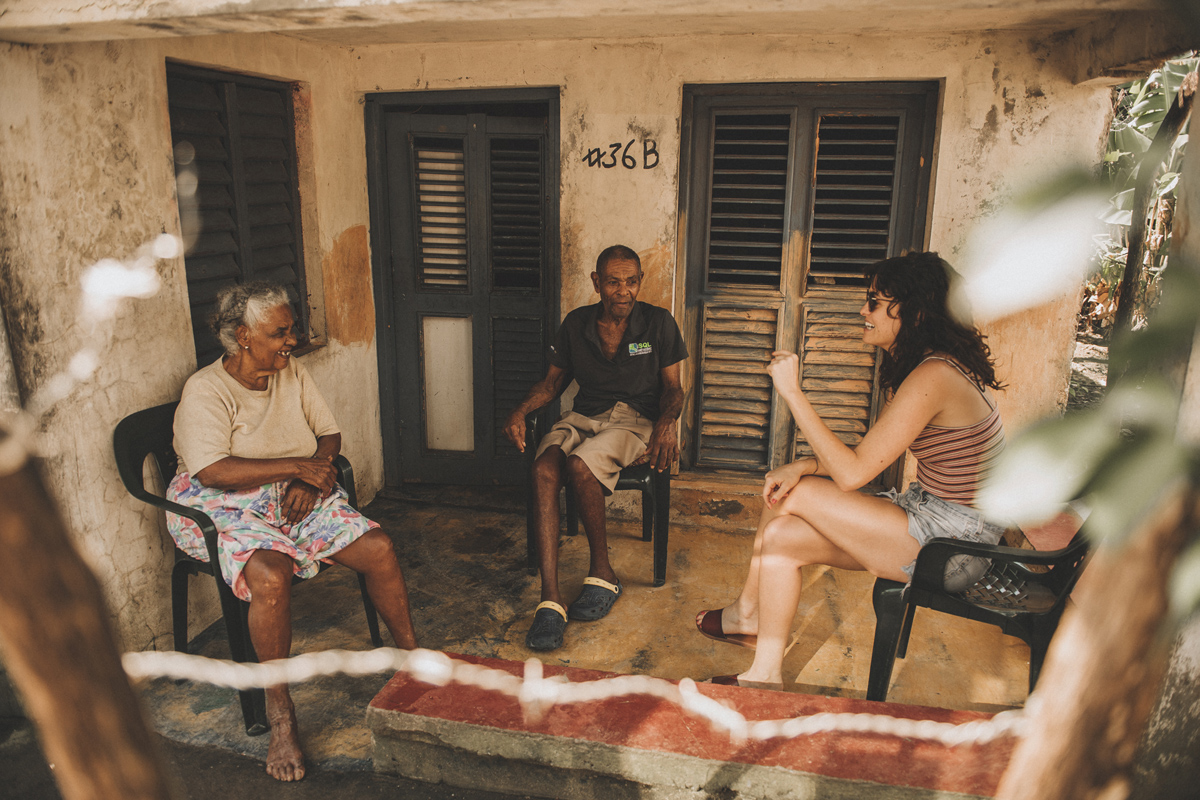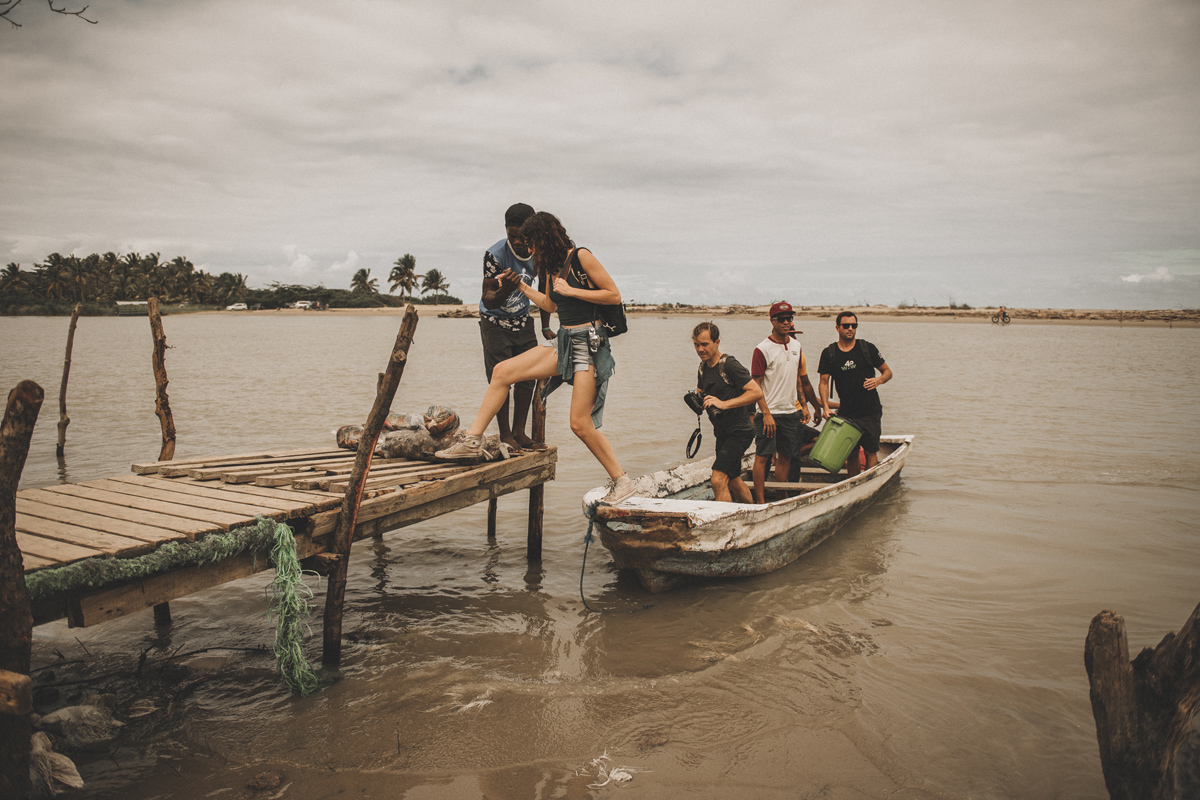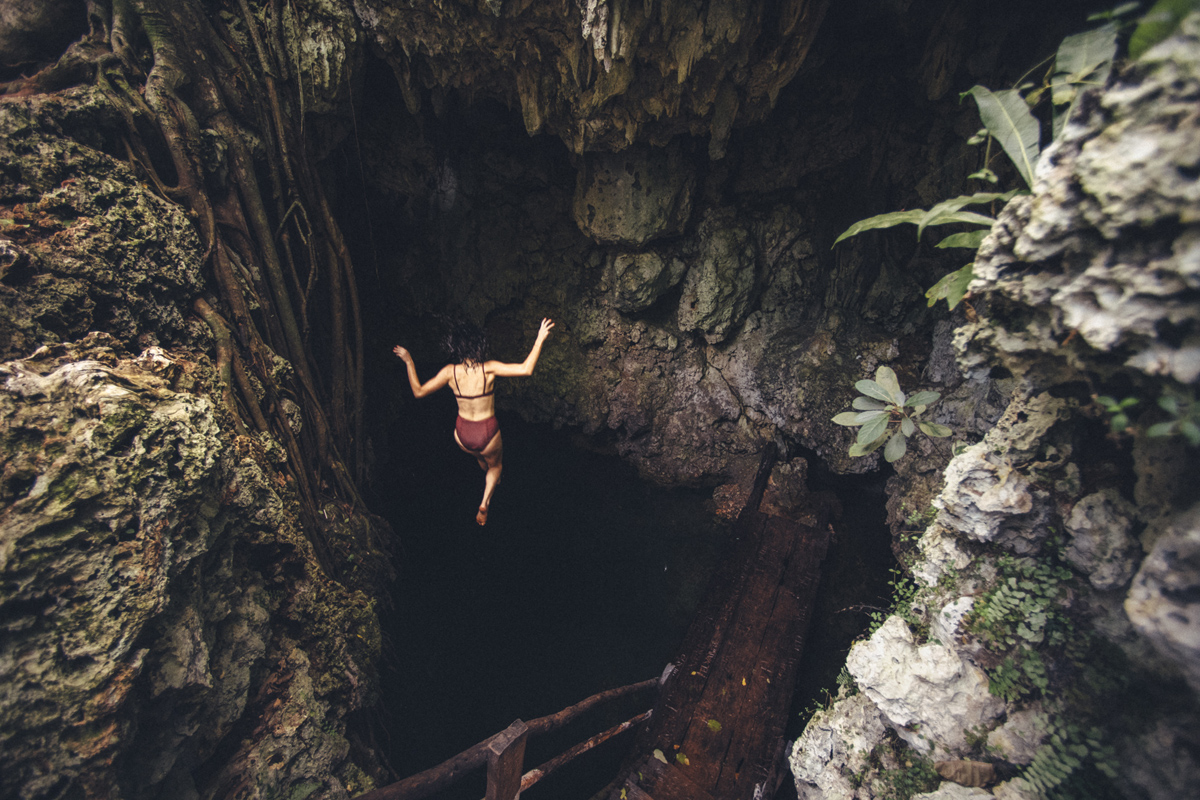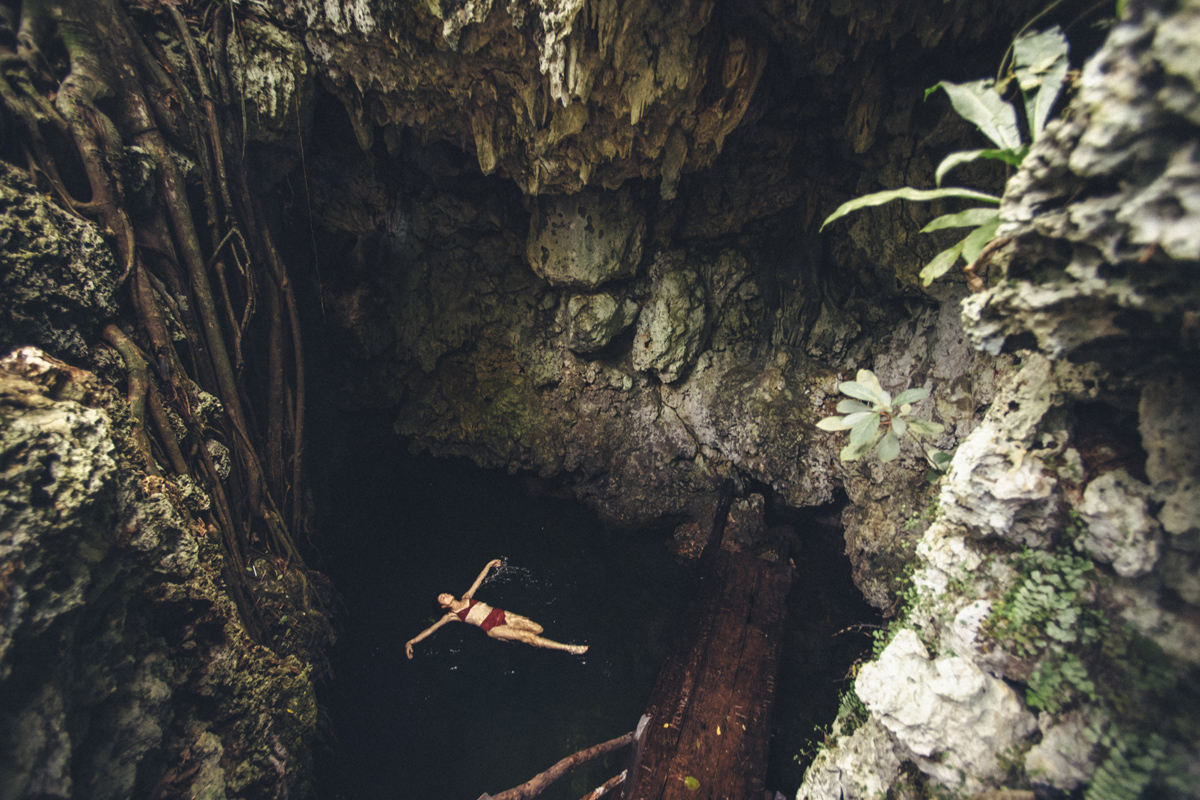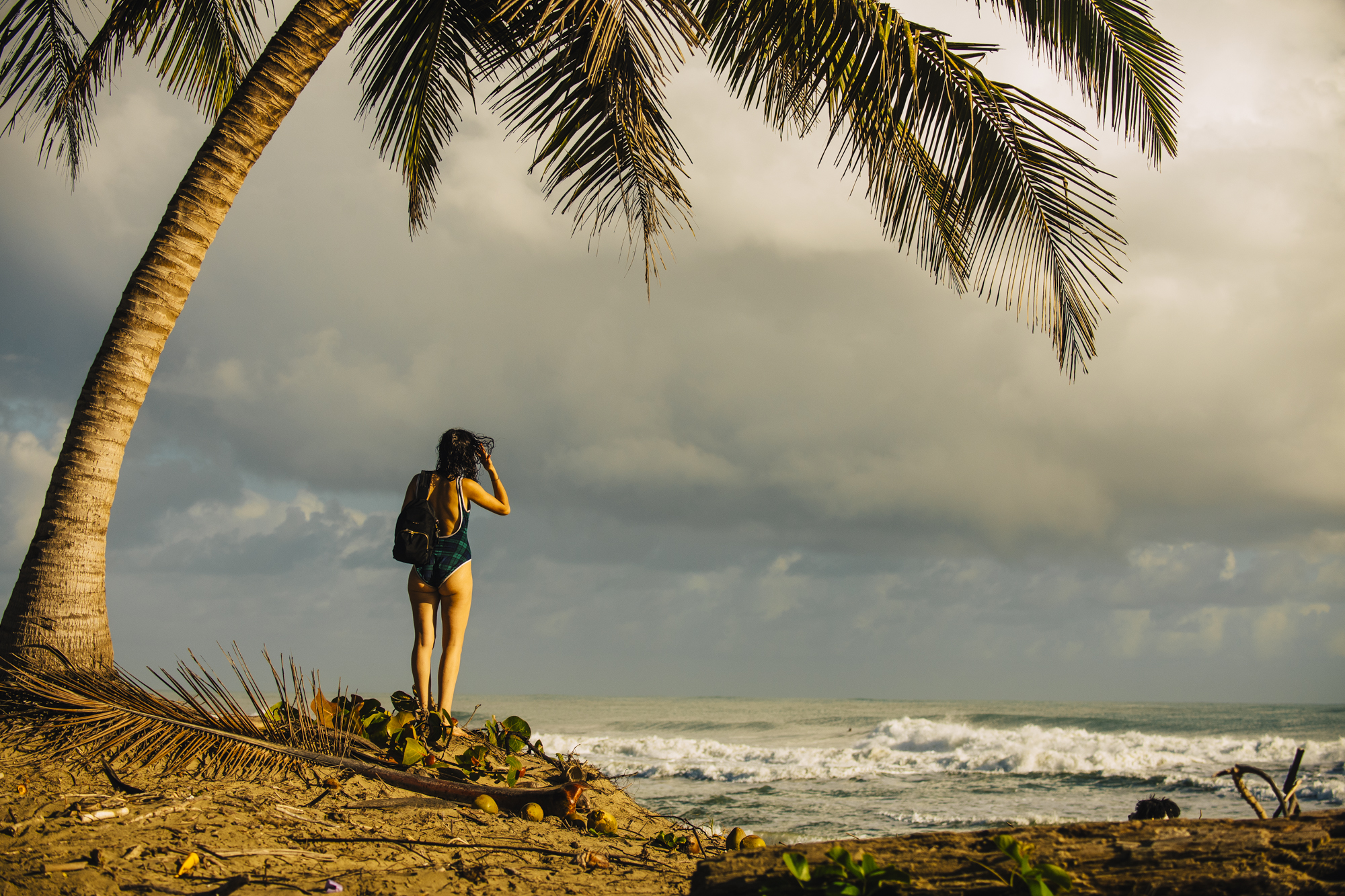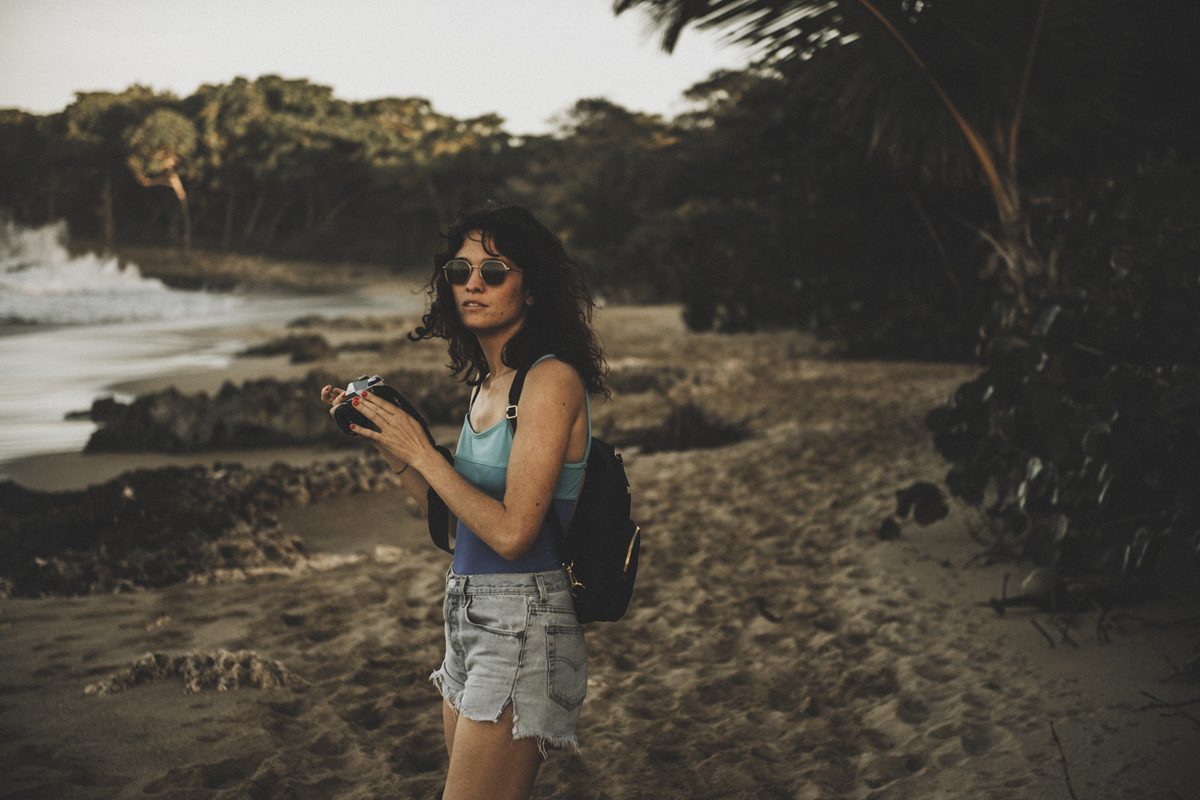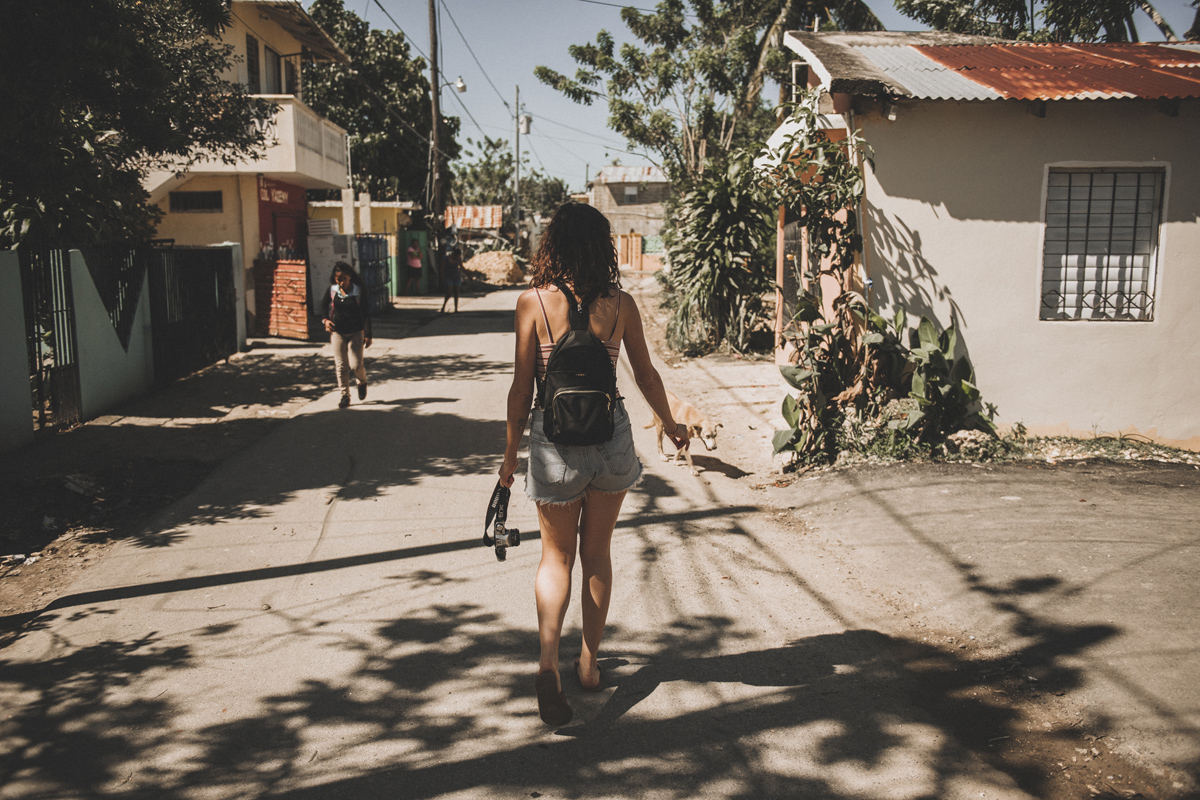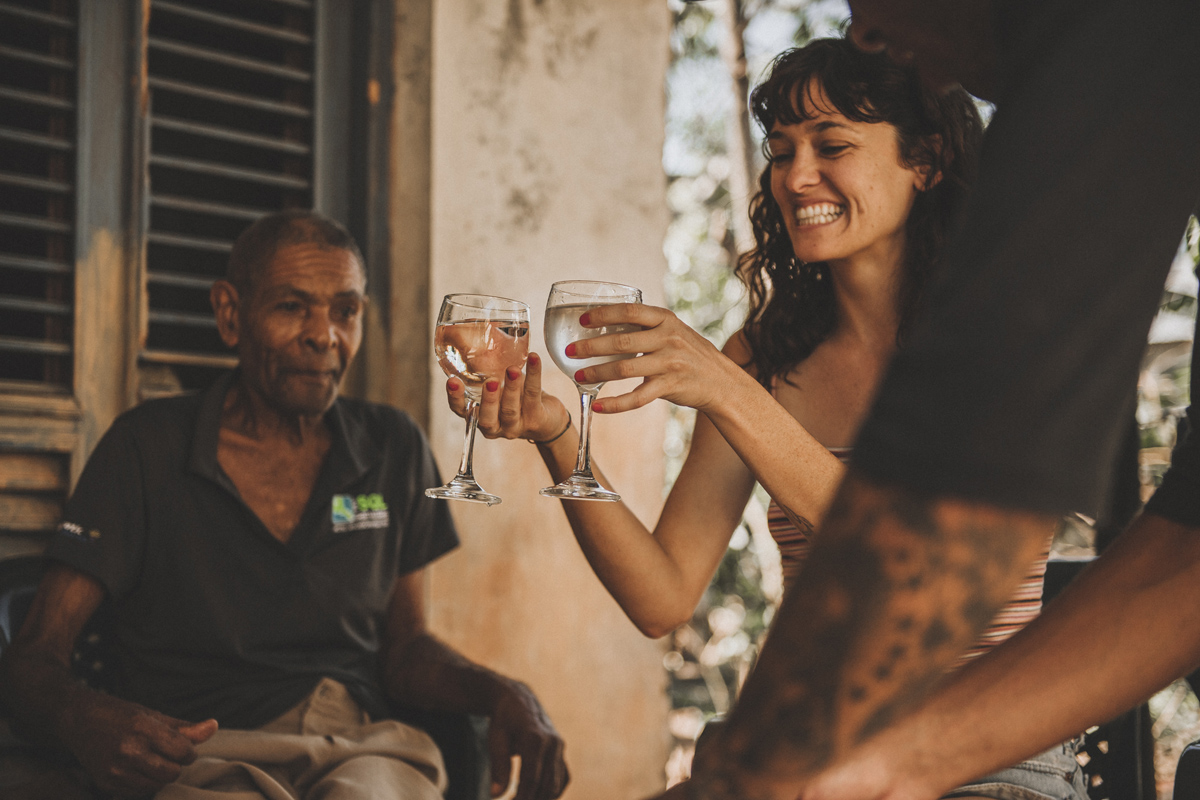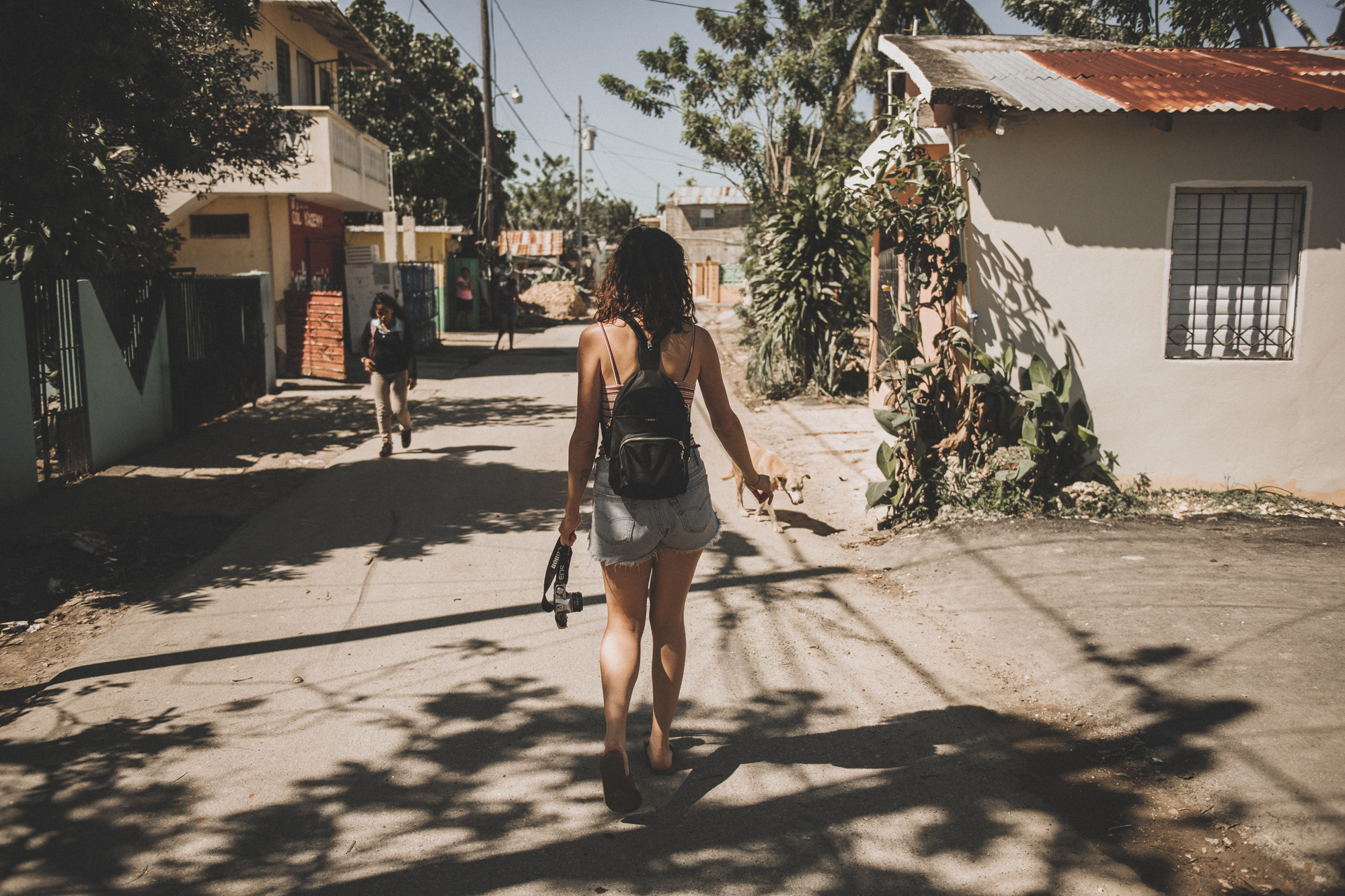I’ve been on the go for the last two years. I am constantly “just about to leave” or “just returning from” and my car and my luggage are never truly unpacked. I want to see places so strange to my senses that I’m left unsure if I’m dreaming or awake. I want to take it all in, bottle it up, and then write it out. And this has been enough for me… until now.
Lately, I’d begun to feel that I was doing a lot of “taking” from the world. Or, better phrased, I was doing a lot of giving to me and not enough giving back. I promised myself at the start of this year that I would remedy this in some way. Curled on the couch, I came up with a whole list of things I could try, but the one I settled on seemed the most tangible, the most concrete way to take a small step outside of myself and become, at the very least, a better traveler.
I became a Waves for Water Clean Water Courier — delivering water filters to underserved communities — on a trip to the Dominican Republic. But this isn’t just straight “voluntourism.” I actually piggy backed onto a surf trip with my boyfriend and his friends, all of whom already knew the W4W program (it started with surfers and has been supported by them from the beginning).
While on the road, I did what I do best: learned, observed, took notes, bottled it up, and now I’m writing it down. Below you’ll find my advice for how to be a water courier, and why the Waves for Water system matters in the first place:
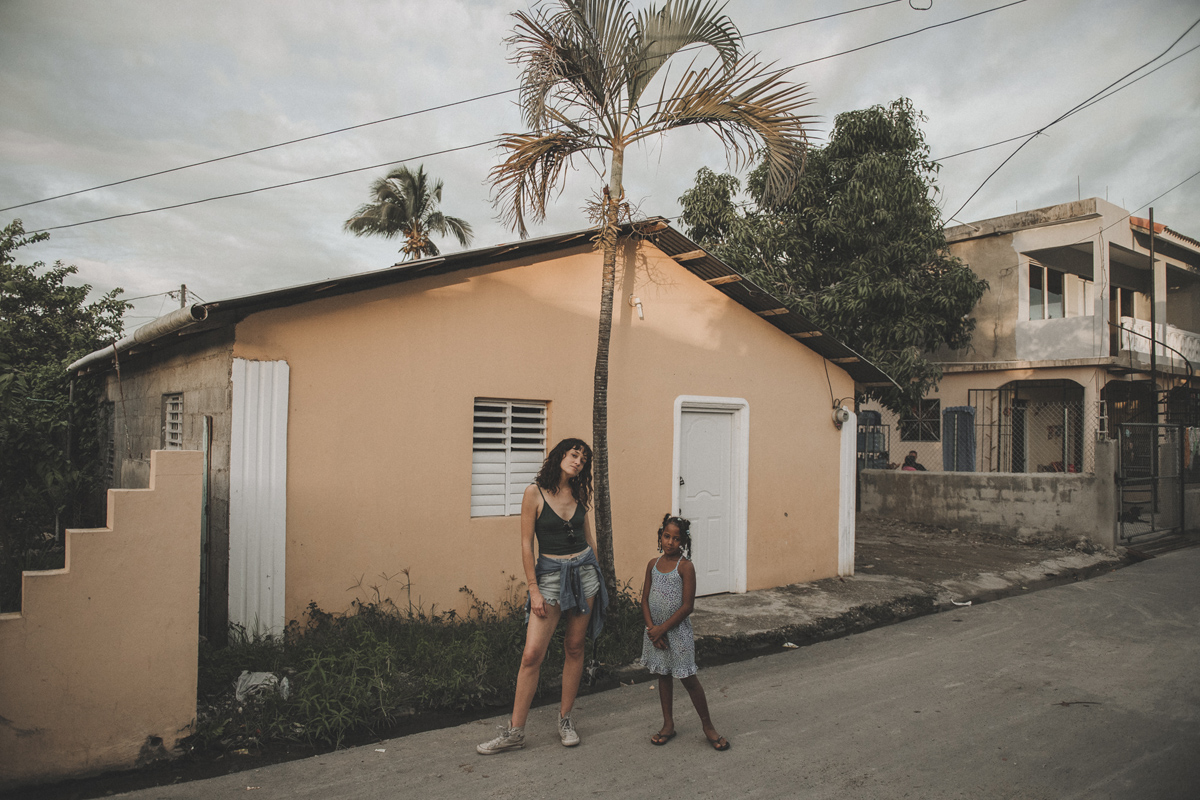
Waves for Water had been on my periphery for years. They’re a guerilla humanitarian organization whose main aim is to provide access to clean drinking water. They do a lot of major disaster relief work (something I am totally unfit for.) But, they also have the Courier Program, which is designed for people like myself who are more human than superhuman.
Essentially the idea is this: when you’re traveling, you also bring their water filters with you, get them to people who need clean drinking water, then go and do your thing. It’s insanely simple, so I don’t really need to unpack the bullet points:
8 steps to being a courier:
- Plan a trip you want to take!
- Get yourself some filters!
- Pack said filters and go!
- Find yourself a point of contact!
- Get a bucket!
- Set up filters!
- Celebrate with beers!
- Do it all again!
I don’t want to sound preachy or like an asshole, and I don’t want to shame us for traveling for pure hedonistic joy (mostly because I do that all the time.) But, discovering that being a humanitarian can be this simple and approachable, makes me feel like it’s my duty to share it. Because here’s the honest truth: While I wanted to be a better traveler and do some good, I also like my life the way it is.
I wasn’t going to relocate for a year, and let’s be real, I don’t even think the Peace Corps would have me. The Courier Program is for travelers/people like me who want to help, can help, and just need the right platform to make it happen.
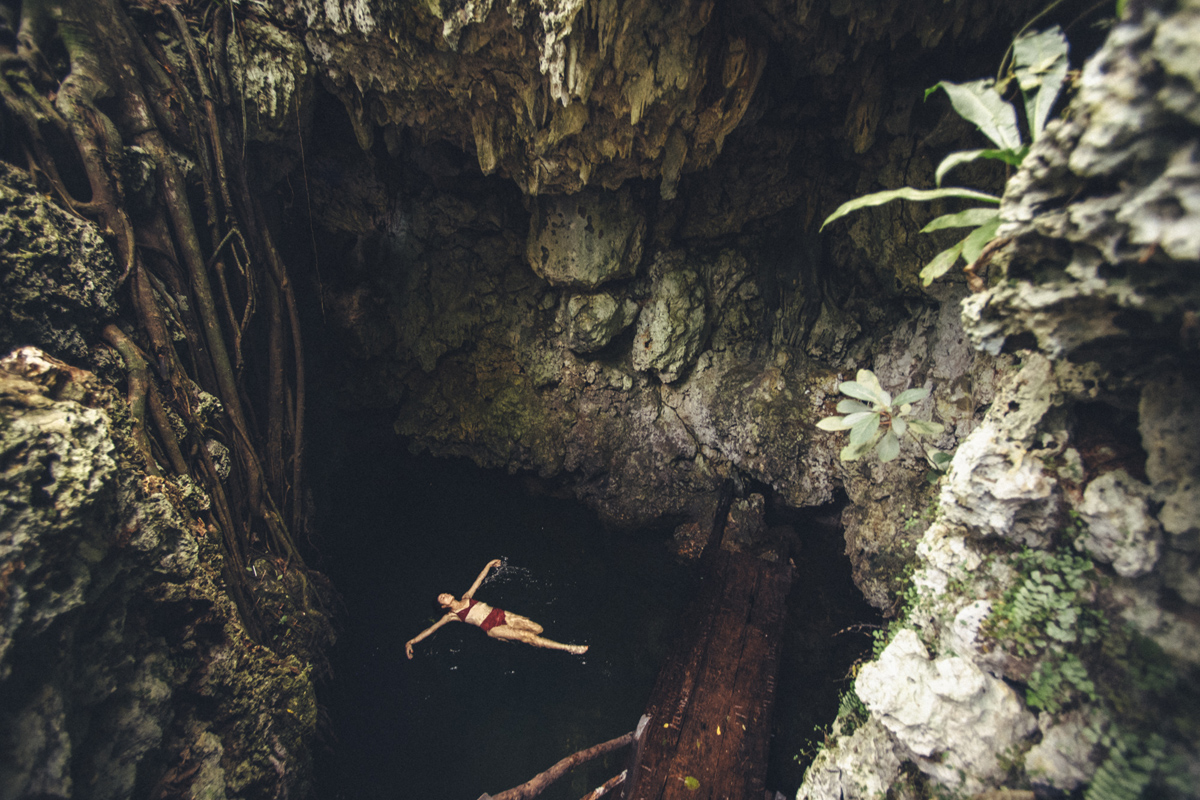
As you can see from the photos, my actual time in the DR was dreamy. In the early morning, like sunrise-early, we’d go to an empty beach and the guys would surf, while I’d write and drink weak tinny coffee. On the way back, we’d drive down dirt roads through lush jungle-scapes, past half built and long forgotten resorts. The trees have begun to take them back, vines snaking over the once white balconies.
As a writer, a romantic, and a lover of jungles that swallow buildings, I fell madly in love with the island. It was like someplace I’d been looking for my entire life.
In the afternoons, we’d meet up with Pedro — a long-time friend of a friend — who lives on the island. This is a key element to getting the filters where they need to go. You will need to meet your own Pedro, your own point of contact. This person ideally serves as both guide and translator if you don’t know the language, which I never do.
At this point I was a ton of questions: How do I find my point of contact? How do I meet Pedro? What if I don’t speak the language? Blah blah. I also realized — at this precise moment — that I am a very introverted traveler. While I am constantly putting myself in the way of beauty, I rarely reach outside of myself and engage with the people around me. Working with Waves for Water, I was able to be more assertive. It was part of the gig. And it was fun. All I had to do was be open, be aware, and talk to people.
As with all of life, the opportunities will present themselves if you step outside of your comfort zone.
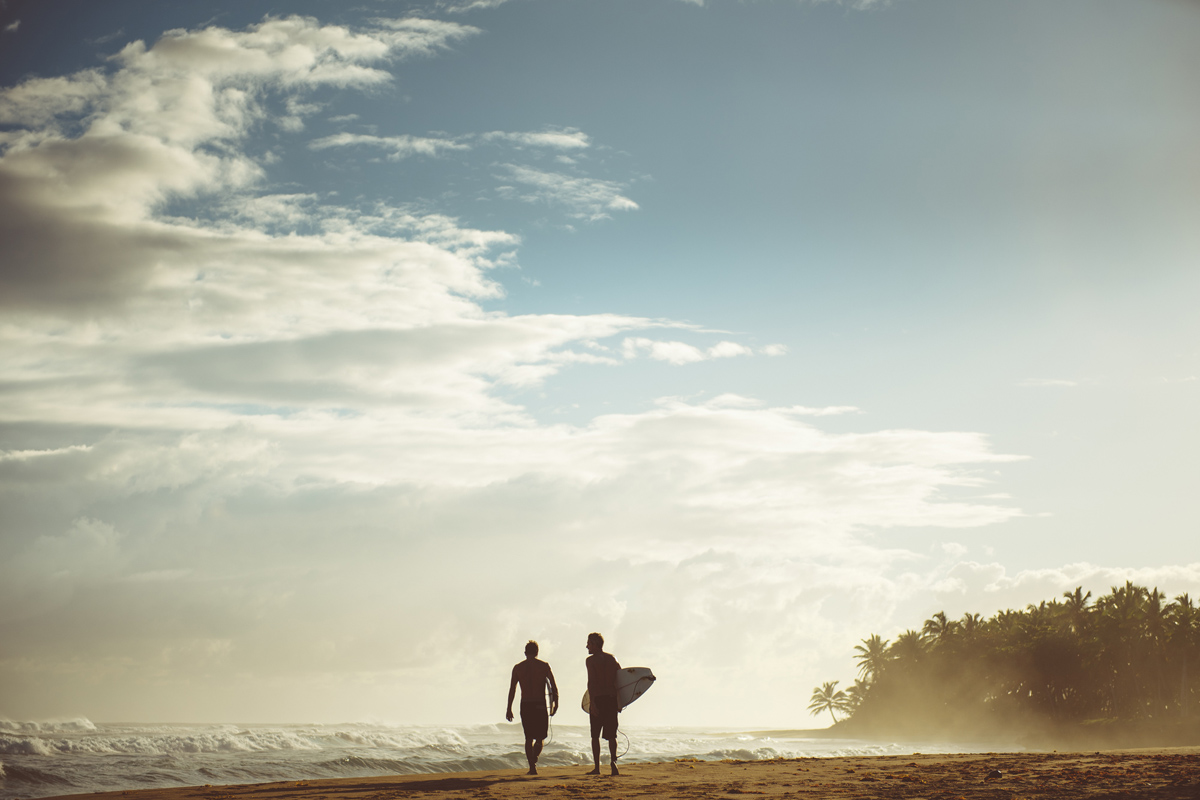
When it comes time to actually set up the filters, you need a bucket, or trash can, or barrel, or whatever. You need something to hold the dirty water and to hook up your filter to. This isn’t much trouble to get — even the most remote hubs have hardware stores. If there’s an airport or dock where you land, you’ll be able to buy some buckets. We found our buckets at a hardware store that was also a furniture store and also a taco shop. (And the tacos were really good.)
The filters themselves are easy to set up, clean, and use. If I can learn how to do this via their instructional online video, then I have full confidence anyone can. Seriously, this stuff isn’t my forte.
Over the course of the week I was in the DR, we set up ten filters throughout Cabarate — mostly in homes of the elderly or families with several children, or homes that served as a hub for the wider community. One of my more salient moments came during my first filter on my own. It was in the home of our driver for the week. When he found out what we were doing I felt embarrassed we hadn’t thought to ask him yet. His wife runs a beauty salon out of their home and it was an ideal hub for people to filter their water. Women were constantly coming and going and sharing there.
If poverty is sexist, then the issue of clean water is at its core. I would bet anything that of all our installations, it’s the salon that will be the most successful. Throughout my trip, it was always the women who stepped forward to learn how to use the filter.
Moments like this kept falling into place. I took them as omens. They were like neon bar signs: This is the way.
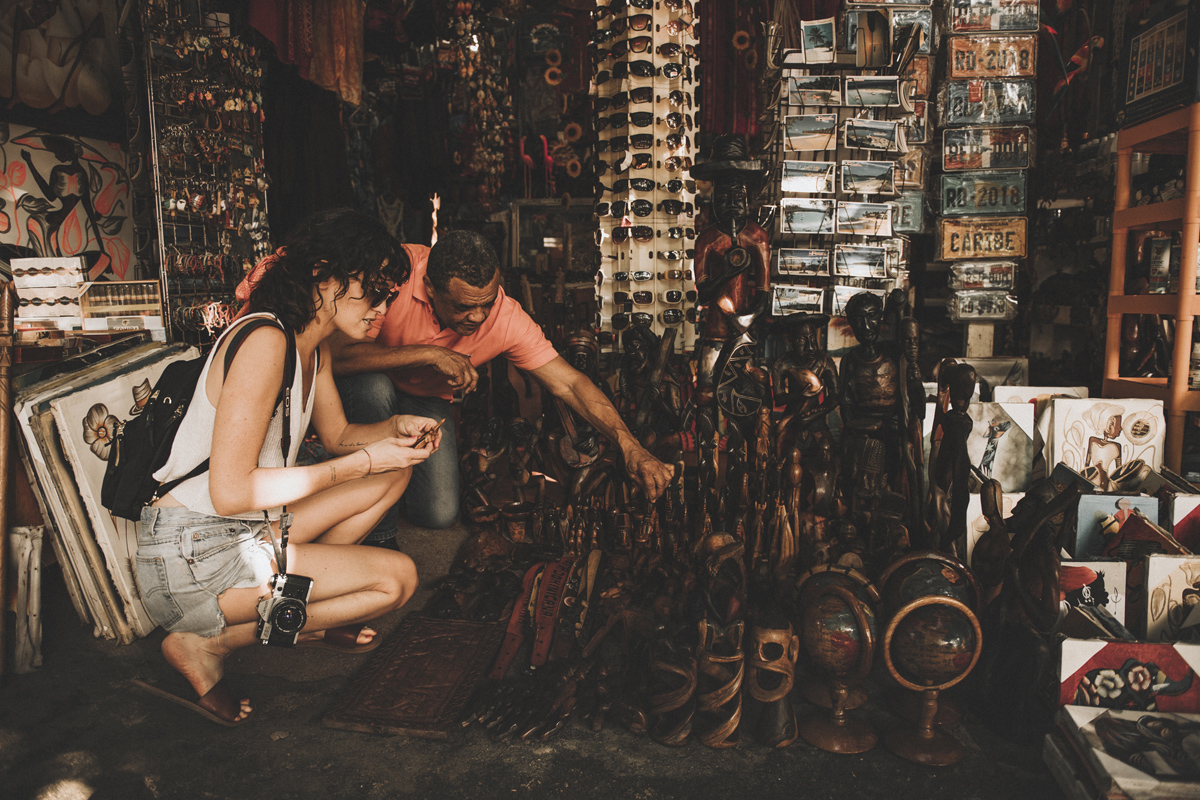
After setting up filters all afternoon, we’d celebrate with beers on the beach or chase down watering holes in the jungle. I’d nap by the pool and eat platters of seafood for dinner under twinkling lights. It’s the genius of the program, you fold the good work into the good time and both are better for it.
I don’t think I’ve become a better person because of this, but I am most certainly a better traveler. I am more in tune with the world and the people and places in which I am visiting. I am led in interesting directions to a more authentic kind of trip. I am outside of myself and more near to whatever I am looking for than ever before.
